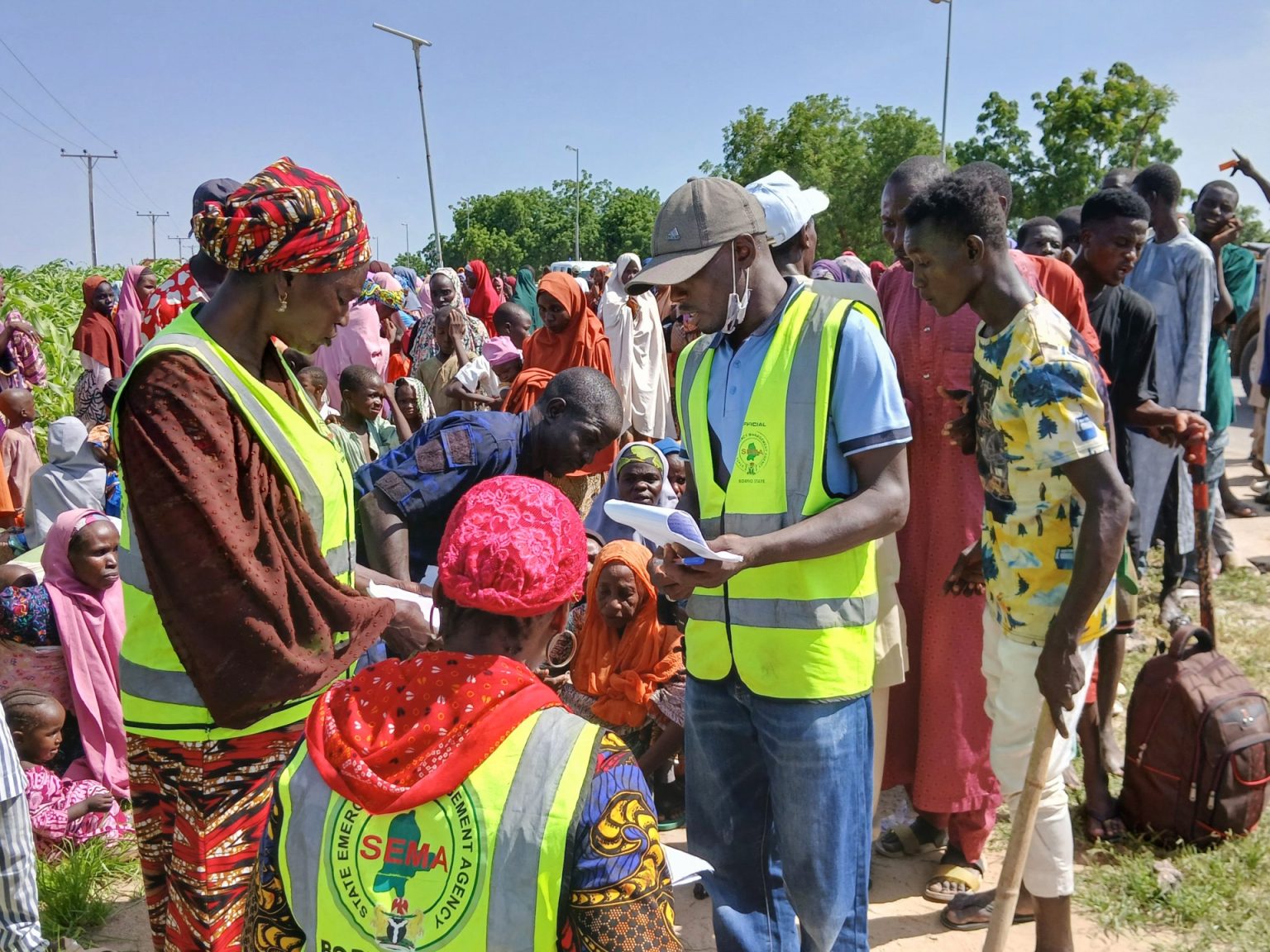Halimah Abdullahi, living in Maiduguri, Nigeria, is devastated as her three-year-old son, Musa, disappeared while she was registering for food aid following massive floods that destroyed their home. The floods affected an estimated 300,000 people in Maiduguri, causing 37 deaths and displacing a million more. The collapse of the Alau Dam due to heavy rainfall is believed to be the worst flooding in the area in 30 years, affecting over four million people across West and Central Africa. The sudden tragedy led to families losing track of children, with many, including Abdullahi, searching desperately for their lost loved ones.
The floods struck Maiduguri at night, catching many residents off guard. Drone shots showed large areas of the city submerged in water, leaving many trapped in their homes. Fati Laminu, one of the victims, narrowly escaped with her life, losing family members in the process. Rescue efforts were hampered by the rising waters, forcing some individuals to seek refuge in trees. The flood also affected the Sanda Kyarimi Park Zoo, causing the death or escape of 80% of the wild animals in its care.
Before the floods, Maiduguri was already home to internally displaced people from the Boko Haram conflict, with residents living in tents and relying on aid for survival. Borno State Governor Babagana Zulum had been working to close down the camps and encourage residents to return home to end the city’s reputation as a place in need. However, the recent floods have led to the opening of additional IDP camps to accommodate those affected by the disaster. The situation has been worsened by food insecurity and high levels of food inflation in Nigeria.
Displaced individuals like Fati Laminu express doubts about the adequacy of government aid and the conditions in the camps, describing them as crowded and lacking basic necessities. The authorities are planning to provide cash transfers to aid the recovery process and encourage people to return home. However, some like Abdullahi are reluctant to leave the camp as they continue to search for their missing loved ones, unsure of what awaits them in their devastated homes. The escape of Boko Haram members from a flooded prison has also raised concerns about public safety.
Despite the challenges they face, many of the displaced individuals are looking forward to rebuilding their lives and returning home to rebuild their destroyed communities. The threat of disease outbreak following the floods has been averted, but many hospitals and buildings have been damaged. The road to recovery will be long and arduous for the residents of Maiduguri, but with the support of aid organizations and the government, they hope to rebuild their lives and communities in the aftermath of this devastating natural disaster.













